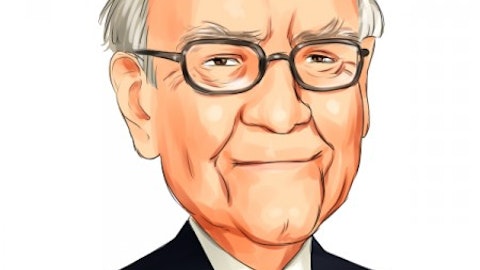2015 was not a great year for hedge funds in terms of performance, but it wasn’t too bad either. The hedge fund industry as a whole lost less than 1% last year, and 2016 is believed to offer the best investment environment for hedge funds, although they haven’t proven it so far. Increased volatility and lower valuations tend to signal more investment opportunities on both the buy and sell sides for highly-talented hedged stock pickers. However, the hedge fund industry is taking a hit from the media yet again for its disappointing performance in 2016. Reportedly, the industry is down by approximately 3% in January, though it should be noted that monthly samples are too small to glean much useful data from and most investment firms are long term-oriented players. Having said that, the following article will discuss four filings submitted with the SEC by several highly successful money managers, including Warren Buffett and Steven Cohen, among others.
Through extensive research, we determined that imitating some of the picks of hedge funds and other institutional investors can help generate market-beating returns over the long run. The key is to focus on the small-cap picks of these investors, since they are usually less followed by the broader market and are less price-efficient. Our backtests that covered the period between 1999 and 2012, showed that following the 15 most popular small-caps among hedge funds can help a retail investor beat the market by an average of 95 basis points per month (see more details here).
According to the latest Form 4 filing from Berkshire Hathaway, the holding company has purchased another 1.69 million shares of Phillips 66 (NYSE:PSX) this week, at prices ranging from $76.79 to $78.60 per share, boosting its overall holding to 73.98 million shares. The Oracle of Omaha has snapped up an additional 2.54 million shares since the last time that the Insider Monkey team covered Buffett’s daily purchases of Phillips’ stock (read more details). The freshly-upped stake accounts for 13.87% of the oil refiner’s total shares. The stock of the energy manufacturing and logistics company is 2% in the red so far in 2016 but is up by nearly 5% over the past 12 months.
The question that most investors might ask is why Buffett considers Phillips 66 (NYSE:PSX) to be an attractive investment opportunity. In our previous articles on the oil refiner, we argued that the broadening U.S. 3:2:1 crack spread (an indicator for refining margins) represents the main reason for investing in the company. However, the company’s refining segment suffered a blow from lower realized margins in the fourth quarter due to a decline in global market cracks. So there is definitely something else that likely explains Buffett’s bullishness. Phillips 66 had cash and cash equivalents amounting to $3.1 billion, and $8.9 million in debt at the end of 2015, so the company’s net-debt-to-capital ratio of 20% is a strong reason for investing in the company. The refiner’s quarterly dividend of $0.56 per share can serve as another strong reason for investing in the stock, as it offers a current dividend yield of 2.83%. The stock trades at a forward price-to-earnings multiple of 11.49, which is slightly higher than depressed ratio of 9.1 for the oil and gas refining and marketing industry. Hence, Phillips 66 appears to represent a Buffett-style income stock, which might serve as a safe bet on the crude oil industry rebound. Iridian Asset Management, founded by David Cohen and Harold Levy, owns 5.22 million shares of Phillips 66 (NYSE:PSX) as of September 30.
Follow Warren Buffett's Berkshire Hathaway
Let’s head to the next two pages of this article, where we discuss three separate filings submitted with the SEC.



